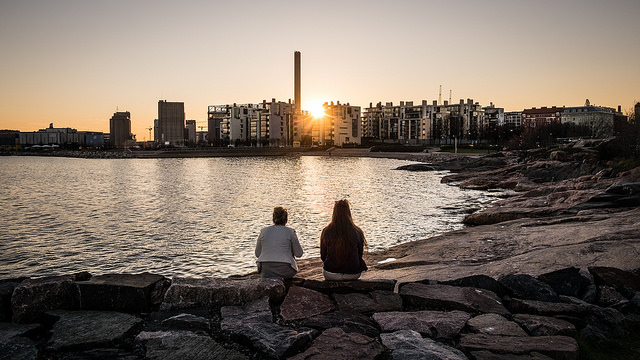While the U.S. economy continues to grow and Americans enjoy a far better life style than most people around the globe, the U.S. for the second year in a row has fallen in a “World Happiness Report” compiled by the United Nations.
And the reason has far more to do with declining public trust than the economy.
The report, which came out Wednesday in advance of the International Day of Happiness on March 20, showed the U.S. falling four slots from last year, from fourteenth to eighteenth. It was the second consecutive year the U.S. has fallen in the rankings.
This year’s happiest nation went to Finland, which surpassed Norway, the 2017 winner. The top four nations in the index were all Scandinavian nations. Denmark, Iceland, and Switzerland rounded out the top five.
Since its inception in 2012, the happiest nation title has gone to a Scandinavian nation, with the exception of 2015, when Switzerland took the top spot.
Known for their “cradle to grave” social services, the northern European nations provide generous health care, unemployment, and child support services. These countries also invest heavily in education, modernizing infrastructure, and public transportation services.
“All the top countries tend to have high values for all six of the key variables that have been found to support well-being: income, healthy life expectancy, social support, freedom, trust and generosity,” says the report.
While the U.S. economy is doing well, its decline on the happiness meter seems to be more related to a decline in public trust, writes Jeffrey Sachs, director of the Sustainable Development Solutions Network at the United Nations in the report.
“While America’s income per capita has increased markedly during the past half century, several of the determinants of well-being have been in decline,” wrote Sachs in the report. “Social support networks in the U.S. have weakened over time; perceptions of corruption in government and business have risen over time; and confidence in public institutions has waned.”
“It seems likely that gains in U.S. well-being that would have resulted from rising incomes have been offset by declines in social capital,” he added.
As for the least happy nation in the world, according to the index: Burundi. The central African nation has struggled with conflict and war. Since it gained independence in the 1960s, it has endured multiple civil wars, and most recently, in 2015, a coup attempt to overthrow the president failed.
Joining Burundi on the bottom are the Central African Republic and South Sudan, both of which have also dealt with sustained political instability.
The report’s methodology uses a combination of social and economic metrics, such as GDP per capita, life expectancy, social support, and perceptions of corruption.

